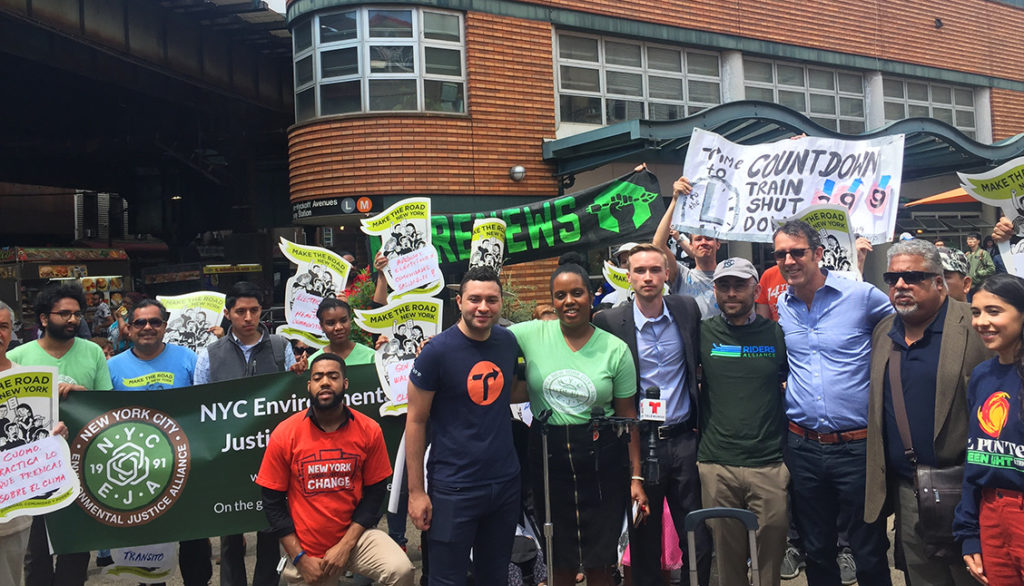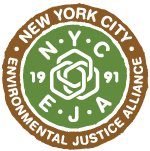
Transportation Justice
The transportation sector is responsible for about 28% of greenhouse gas emissions (GHG) in New York State and nearly 28% of New York City’s GHG emissions. In order to deal with the growing dangers of climate change and improve public health outcomes in frontline communities, it is essential to create a cleaner and more efficient transportation system in New York City and New York State.
NYC-EJA advocates for a just and equitable transportation future through multiple campaigns that advance City and State policies to reduce emissions, increase access to sustainable transportation options, improve air quality and support better health, especially in low-income communities and communities of color that inequitable transportation systems and infrastructure have historically overburdened.
While issues of access, reliability and technological advancements are often placed at the forefront of transportation debates, our campaigns also elevate the importance of understanding how transportation and public health intersect. For example, in many low-income communities and communities of color, the burden of inadequate and unreliable transportation options is compounded by the uneven distribution of transportation facilities like bus depots and how the clustering of these and other public works facilities can lead to negative health outcomes like increased asthma rates.
Our advocacy efforts include our demand for the Metropolitan Transportation Authority (MTA) to transition its entire fleet to zero-emissions, all-electric public buses; our fight for a comprehensive congestion pricing plan to reduce traffic, improve air quality, and provide a dedicated funding stream to improve the public transportation system, regulating e-commerce warehouses at the city and state level to reduce emissions from the extreme levels of incoming and outgoing truck and vehicle trips, and our support of neighborhood-based grassroots transportation campaigns to make transportation improvements that serve all New Yorkers equitably, rather than a privileged few.
